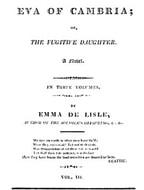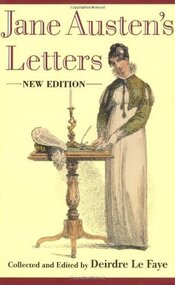| This blog explores social attitudes in Jane Austen's time, discusses her novels, reviews forgotten 18th century novels, and throws some occasional shade at the modern academy. The introductory post is here. My "six simple questions for academics" post is here. |
 Imperfect heroines -- Catherine Morland (Felicity Jones) in Northanger Abbey
Imperfect heroines -- Catherine Morland (Felicity Jones) in Northanger Abbey Of course, dramatic novels contained some comic leavening, usually provided by a garrulous servant who speaks with a regional accent. And comic authors still inveighed against the follies of the times. The anonymous author of I’ll Consider of It!! weighs in on a lot of topics, such as female education, boarding schools, animal cruelty, unhealthy corseting, and uncharitable people, but it is an essentially light-hearted novel. It was written in imitation of a fabulously successful book which had come out the year before, titled Thinks I to Myself. The narrator and characters keep repeating '"I'll consider of it!" on every other page, which gets tiresome. But the odd thing it, the narrator of I’ll Consider of It frequently interrupts himself to take a poke at Thinks I To Myself. I’ll get back to the strange relationship between TITM and ICoI later.
First, let’s meet our heroine, Charlotte Clarkson, who lives with her maternal grandfather, General Littlefame, and her widowed mother. The family are neither wealthy nor of high status, but the author arranged that Mrs. Clarkson fortuitously won five thousand pounds in the lottery, which is enough to get by with a single servant and to send Charlotte to a good boarding school. Mrs. Clarkson has high hopes for her lovely daughter…







 RSS Feed
RSS Feed